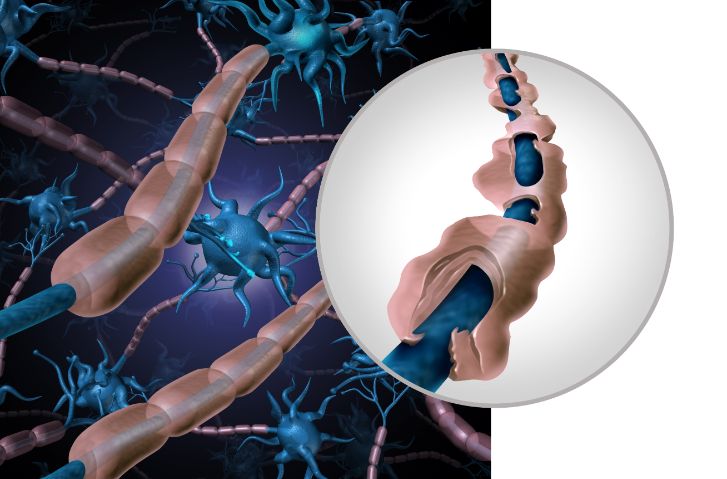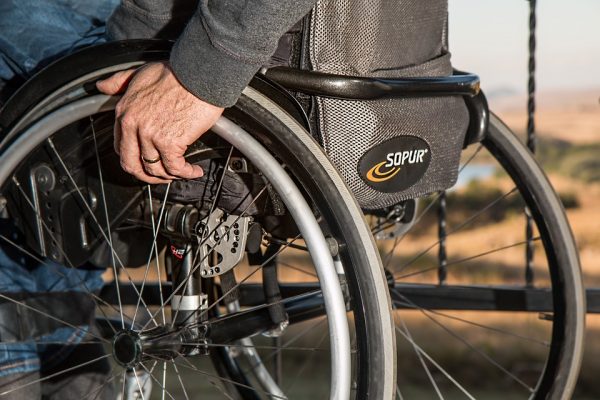


What Are Multiple Sclerosis Symptoms?
MS Symptoms are different for every MS sufferer. Some of the commonest symptoms of MS are outlined below. However, there are many other symptoms that MS may cause, yet not everyone will suffer them all. Muscle weakness and spasms are very common MS symptoms and although often described as ‘muscle rigidity’ are actually quite common. Other common MS symptoms are:
MS Symptoms associated with fatigue are: Being tired all the time or feeling extremely tired throughout the day, either even when not having enough sleep or when you’ve had plenty of sleep. Walking difficulties and getting up after sitting down for a prolonged time are two symptoms of fatigue that are quite common in MS sufferers. Other people who have MS, do not necessarily report feeling tired all the time or that they wake up feeling exhausted (and this could include those who have had sleep apnea).

MS sufferers can also feel tired, irritable and short of breath when urinating. MS sufferers can also report having bladder problems – one MS symptom that is frequently reported. Bladder problems are also common with people who have MS and the MS bladder weakness is sometimes described as a ‘double burden’ on the bladder as the MS bladder is more painful and sensitive than the usual person’s bladder. MS bladder weakness (also called Urinary Distress Syndrome) can make it difficult to control urination or it can be difficult to discharge urine and this can result in the sufferer needing to use a colposcope to urinate or using a bag.
Other MS Symptoms are that of visual disturbances. MS sufferers can experience problems seeing things at night, such as seeing spots where there are none, blurred vision (which can affect peripheral vision) and floaters. These symptoms are often first noticed during the early stages of MS. They are more likely to occur in the mornings when sitting or sleeping. Over a period of time other more severe MS Symptoms such as numbness and tingling, weakness in the legs or arm or trouble walking, will become apparent.

MS Disease also affects the muscles and joints and these MS symptoms are also common symptoms. MS sufferers may find that their muscles and joints become stiff or they are unable to move them as easily as they once did. This stiffness can sometimes become so severe that it can make it hard to get out of bed or it may seem difficult to bend over. MS Disease often results in a temporary worsening of these MS symptoms, which can then lead to other more severe MS Symptoms.
MS relapses after periods of time between relapses. The MS relapse may include additional health complications such as infections or muscle weakness. The MS relapse may also include changes in personality, changes in appetite and weight loss, bladder and bowel problems, speech problems, depression, irritability, anxiety, and depression. MS relapses can occur in any part of the brain but typically they occur in the central areas of the brain responsible for co-ordination, movement, balance and concentration.

MS Symptoms may vary and the MS symptoms may appear and disappear at different times. MS relapses can last for days, weeks or months. MS relapses can occur due to acute attacks or chronic attacks (a series of MS attacks within a few weeks or months). Acute attacks can be triggered by trauma such as a fall or an accident. Acute attacks can be triggered by stress, dietary deficiencies, allergies, or an underlying illness.
MS Symptoms can be disabling and many people with MS are unable to work or engage in certain daily activities. It can be hard to live life full of constant pain and discomfort. Most people with MS take medication on a regular basis in order to control their MS symptoms and attacks. There are now several pharmaceuticals and some natural supplements available that may help reduce the effects of these multiple sclerosis medications. This may give you hope that you can live a normal life again.





















